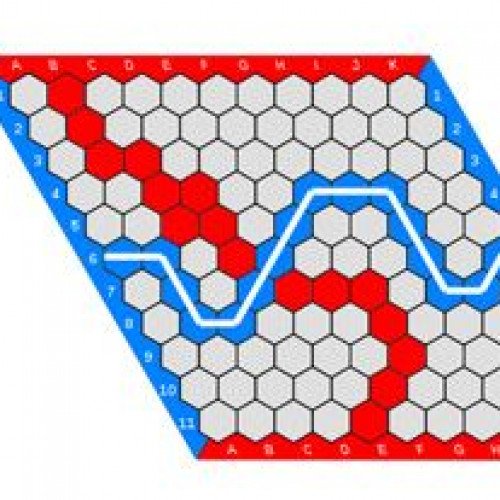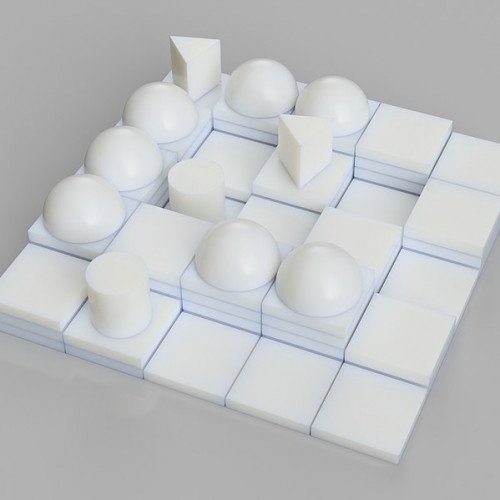HEX VS SANTORINI

HEX
Hex is a two player abstract strategy board game in which players attempt to connect opposite sides of a hexagonal board. Hex was invented by mathematician and poet Piet Hein in 1942 and independently by John Nash in 1948. It is traditionally played on an 11×11 rhombus board, although 13×13 and 19×19 boards are also popular. Each player is assigned a pair of opposite sides of the board which they must try to connect by taking turns placing a stone of their color onto any empty space. Once placed, the stones are unable to be moved or removed. A player wins when they successfully connect their sides together through a chain of adjacent stones. Draws are impossible in Hex due to the topology of the game board. The game has deep strategy, sharp tactics and a profound mathematical underpinning related to the Brouwer fixed-point theorem. The game was first marketed as a board game in Denmark under the name Con-tac-tix, and Parker Brothers marketed a version of it in 1952 called Hex; they are no longer in production. Hex can also be played with paper and pencil on hexagonally ruled graph paper. Hex-related research is current in the areas of topology, graph and matroid theory, combinatorics, game theory and artificial intelligence.
Statistics for this Xoptio

SANTORINI
Santorini is an abstract strategy board game for 2-4 players designed and released in 2004 by Gordon Hamilton and republished via Kickstarter in 2016 by Roxley Games. Inspired by the architecture of cliffside villages on Santorini Island in Greece, and primarily designed for two players, the game is played on a grid where each turn players build a town by placing building pieces up to three levels high. To win the game, players must move one of their two characters to the third level of the town. Each turn of play involves moving one of your two pieces around a 5-by-5 grid each turn and then placing a tile adjacent to the moved piece, building up that spot of the board. On subsequent turns, pieces may be moved onto one of these built-up tiles, but only one level up at a time. Pieces may also be moved down any number of levels. Players may also place a special dome tile on top of a three-level building, which prevents a player from moving onto that spot for the remainder of the game. The primary winning condition is to get one of your pieces onto the third level, though players may also win if their opponent is unable to make a move. The Roxley Games version of Santorini introduced a god powers variant, which gives each player a unique way to break the rules. After being directly released and sold by Hamilton in 2004, Roxley Games ran a Kickstarter campaign during March-April 2016, drawing over 7,100 backers and raising over C$700,000, the most successful Kickstarter campaign ever based in Alberta. While the original release used plain white blocks as components, the Roxley version featured an enhanced cartoon-like look to the game, which Hamilton credits for success of the Kickstarter campaign. The game was released in retail outlets in January 2017.